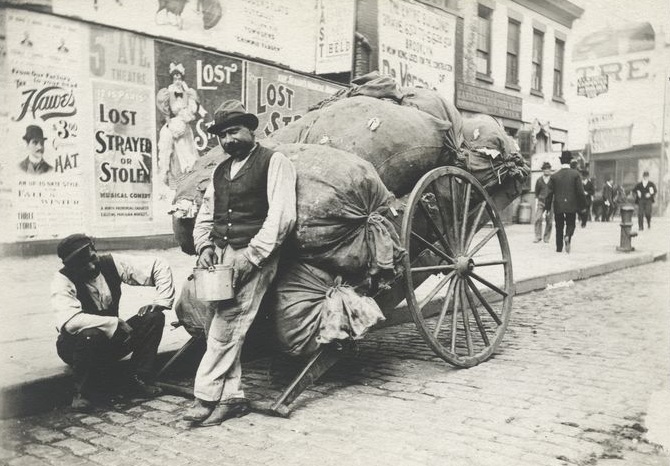Trash has always been full of treasure and those who won contracts to remove offal from districts of Brooklyn in the 1800s checked the refuse closely for riches before chucking it, because you never knew what was going to turn up. And it was no different in London. From the July 4, 1886 Brooklyn Daily Eagle:
“‘You would be surprised,’ sad a well known offal contractor to an Eagle reporter recently, ‘at the large number of valuables found in the city’s dumping grounds. Although the men in charge of the dumps deny that anything of value is ever found, I can vouch that they don’t always tell the truth. Miscellaneous articles, such as silver teaspoons, knives and forks, shoes and clothing, in good and bad condition, are picked up daily, but it frequently happens that gold watches and diamonds are among the valuables found. Dead babies a few years ago were not an uncommon occurrence. In the government grounds ten cents is charged for each load dumped. Articles of an unusual character are only found in the ashes and swill refuse. Ladies washing dishes will drop rings in the swill, and by the time they have missed them the swill will be on its way either to the dumping grounds or the piggeries. Diamonds, from earrings and rings, are lost in the same manner.
In London, the contract for examining ashes and swill is awarded to the highest bidder. The method employed by the contractor to ascertain whether any articles of value are contained in the rubbish is a novel one. The carts are dumped on a screen, which, after having become filled, is elevated into the air. A dozen men dressed in rubber suits, without pockets, are set to work on the screen. These men go over the ashes and the offal carefully, and in case anything valuable is found it is turned over at once to the contractor and superintendent. As the workers wear pocketless clothing they can secure nothing about their persons. After all the ashes have been thoroughly screened they are covered and a new lot examined.”

